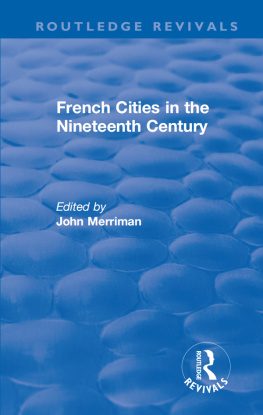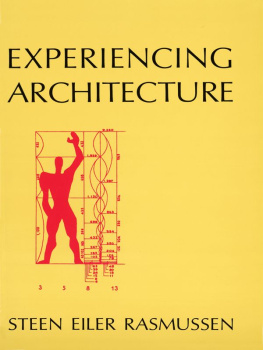
Near Eastern Tribal Societies during the Nineteenth Century
Approaches to Anthropological Archaeology
Series Editor: Thomas E. Levy, University of California, San Diego
Editorial Board
Guillermo Algaze, University of California, San Diego; Geoffrey E. Braswell, University of California, San Diego; Paul S. Goldstein, University of California, San Diego; Joyce Marcus, University of Michigan
This series recognizes the fundamental role that anthropology now plays in archaeology and also integrates the strengths of various research paradigms that characterize archaeology on the world scene today. Some of these different approaches include New or Processual archaeology, Post-Processual, evolutionist, cognitive, symbolic, Marxist and historical archaeologies. Anthropological archaeology accomplishes its goals by taking into account the cultural and, when possible, historical context of the material remains being studied. This involves the development of models concerning the formative role of cognition, symbolism, and ideology in human societies to explain the more material and economic dimensions of human culture that are the natural purview of archaeological data. It also involves an understanding of the cultural ecology of the societies being studied, and of the limitations and opportunities that the environment (both natural and cultural) imposes on the evolution or devolution of human societies. Based on the assumption that cultures never develop in isolation, Anthropological Archaeology takes a regional approach to tackling fundamental issues concerning past cultural evolution anywhere in the world.
Published
Agency and Identity in the Ancient Near East: New Paths Forward
Edited by Sharon R. Steadman and Jennifer C. Ross
The Ancient Maya of Mexico: Reinterpreting the Past of the Northern Maya Lowlands
Edited by Geoffrey E. Braswell
Animal Husbandry in Ancient Israel: A Zooarchaeological Perspective: Herd Management, Economic Strategies and Animal Exploitation
Aharon Sassoon
Archaeology, Anthropology and Cult: The Sanctuary at Gilat, Israel
Edited by Thomas E. Levy
Axe Age: Acheulian Tool-making from Quarry to Discard
Edited by Naama Goren-Inbar and Gonen Sharon
Connectivity in Antiquity: Globalization as a Long-Term Historical Process
Edited by ystein LaBinaca and Sandra Arnold Scham
Dawn of the Metal Age: Technology and Society during the Levantine Chalcolithic
Jonathan M. Golden
Early Bronze Age Goods Exchange in the Southern Levant: A Marxist Perspective
Ianir Milevski
Egalitarian Revolution in the Savanna: The Origins of a West African Political System
Stephen A. Dueppen
Israels Ethnogenesis: Settlement, Interaction, Expansion and Resistance
Avraham Faust
Metal, Nomads and Culture Contact: The Middle East and North Africa
Nils Anfinset
Near Eastern Tribal Societies during the Nineteenth Century: Economy, Society and Politics between Tent and Town
Eveline van der Steen
New Approaches to Old Stones: Recent Studies of Ground Stone Artifacts
Edited by Yorke M. Rowan and Jennie R. Ebeling
Prehistoric Societies on the Northern Frontiers of China: Archaeological Perspectives on Identity Formation and Economic Change during the First Millennium BCE
Gideon Shelach
Structured Worlds: The Archaeology of Hunter-Gatherer Thought and Action
Edited by Aubrey Cannon
The Technology of Maya Civilization: Political Economy and Beyond in Lithic Studies
Edited by Zachary X. Hruby, Geoffrey E. Braswell and Oswaldo Chinchilla Mazariegos
Ultimate Devotion: The Historical Impact and Archaeological Expression of Intense Religious Movements
Yoav Arbel
Near Eastern Tribal Societies during the Nineteenth Century
Economy, Society and Politics between Tent and Town
Eveline van der Steen
First published 2013 by Equinox, an imprint of Acumen
Published 2014 by Routledge
2 Park Square, Milton Park, Abingdon, Oxon OX14 4RN
711 Third Avenue, New York, NY 10017, USA
Routledge is an imprint of the Taylor & Francis Group, an informa business
Eveline J. van der Steen 2013.
All rights reserved. No part of this book may be reprinted or reproduced or utilised in any form or by any electronic, mechanical, or other means, now known or hereafter invented, including photocopying and recording, or in any information storage or retrieval system, without permission in writing from the publishers.
Notices
Practitioners and researchers must always rely on their own experience and knowledge in evaluating and using any information, methods, compounds, or experiments described herein. In using such information or methods they should be mindful of their own safety and the safety of others, including parties for whom they have a professional responsibility.
To the fullest extent of the law, neither the Publisher nor the authors, contributors, or editors, assume any liability for any injury and/or damage to persons or property as a matter of products liability, negligence or otherwise, or from any use or operation of any methods, products, instructions, or ideas contained in the material herein.
ISBN: 978-1-908049-83-4 (hardback)
British Library Cataloguing-in-Publication Data
A catalogue record for this book is available from the British Library.
Library of Congress Cataloging-in-Publication Data
Steen, E. J. van der (Eveline J.)
Near Eastern tribal societies during the nineteenth century : economy, society and politics between tent and town / Eveline J. van der Steen.
p. cm. (Approaches to anthropological archaeology)
Includes bibliographical references and index.
ISBN 978-1-908049-83-4 (hardcover)
1. TribesMiddle East. 2. Middle EastSocial conditions. I. Title.
GN492.5.S74 2013
305.800956dc23
2012026868
Typeset by JS Typesetting Ltd, Porthcawl, Mid Glamorgan
For Ulrich Jasper Seetzen and John Lewis (Johann Ludwig) Burckhardt: travellers into the unknown
Contents
Acknowledgements
When I started my explorations into nineteenth-century tribal territories, I had no idea what I was letting myself in for. It all started on a cold wintry night back in the early 1990s, at the British School of Archaeology in Jerusalem (now the Kenyon Institute), itself a monument from that exciting era of discovery. In search of suitable bedtime reading, I took Gertrude Bells letters from the library and was soon hooked. Gertrude was a woman who had not only a brilliantly gifted pen, but also a sharp political mind, and a profound understanding of the fascinating power games played among the tribes, tribal leaders and governments in an era that was about to end. After Gertrudes letters I delved into the accounts of other travellers, mostly from the nineteenth century, and realized that here was a world explored but largely forgotten in late twentieth-century anthropology, in which the shots were called not by the great powers and dynamics of Western capitalist society, but by players of a different game, in which the rules were set by local power structures and a tribal ideology.









